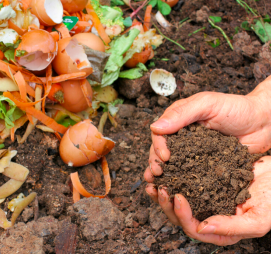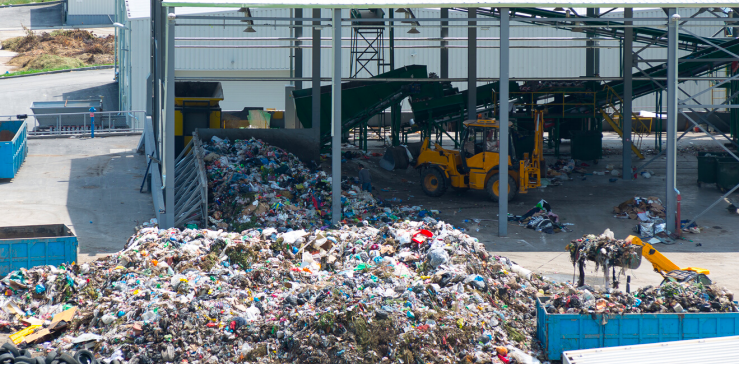Waste Management: The Power of Composting
By Jaideep Saptarishi, Executive Director – Vermigold Ecotech Pvt. Ltd.
COVID-19 pandemic has plunged the entire world into a state of disarray. It has further exposed how the linear economy cripples economic resilience, exacerbates social inequality, and depletes natural resources. As with sustainability and climate change-related challenges, the virus has no respect for political, geographical, or religious boundaries. Today, we are more aware than ever of the interdependencies binding our natural, social and economic systems. Technologically advanced, sustainable, and resilient infrastructure can pave the way for an inclusive post-COVID economic recovery. The need of the hour is to flatten the unsustainability curve by adopting a circular economy model. A circular economy follows the 3R approach: reduce, reuse and recycle, whereas a linear economy will only damage the environment further.

COMPOSTING: NATURE’S CIRCULAR ECONOMY
Food waste is reduced and reused, its nutrients are recycled into fertilizer. By returning these nutrients to the soil, rather than letting organic waste rot away in landfills we can rejuvenate the soil. Compost enriches the soil, helps retain moisture, and suppresses plant diseases and pests. It reduces the need for chemical fertilizers and encourages the production of beneficial bacteria and fungi that break down organic matter to create rich nutrient-filled materials. Composting reduces methane emissions from landfills and lowers carbon footprint.

PROBLEM OF WASTE
According to the estimates of Brihanmumbai Municipal Corporation (BMC), Mumbai generates about 7,500 tonnes per day of solid waste, making it one of the top waste generating metropolitan cities of the country. The dumping sites of Mumbai, where waste is dumped unscientifically, are ticking time bombs, and hence waste segregation at source combined with on-site waste management of compostable organics will help in diverting the waste from landfills significantly. In the post COVID world, strict implementation of 3-way source segregation by separating the biodegradable waste, non-biodegradable waste, and bio-medical waste as mandated by SWM 2016 rules is crucial for the safety of the waste management staff. Around 70% of the generated waste is biodegradable and is compostable. On-site waste management is an important component to build sustainable and resilient infrastructure in the circular economy. It can be done either with bacteria culture or utilizing composting worms also known as vermicomposting.
THE SOLUTION – SEGREGATION & COMPOSTING
One significant step that organizations can take to achieve zero waste to landfill goals is by engaging a trusted partner to help implement a composting program that improves the environment and creates value. Organic waste composters should deliver real benefits to the end-user and the environment. Their operations should not have any foul odor, have low power consumption, have low operational cost, minimal maintenance requirements, have zero toxic discharge and the compost should have high nutrient value useful for gardening requirements.
The unintended benefit of the COVID-19 lockdown in India has been the ‘detox’ of our living environment. Water bodies contaminated due to dumping of garbage and sewage have got a new breath of life due to this pause and reset of our economic activities. The real challenge is whether we will be able to maintain this improved environmental climate in the post-lockdown days. This pandemic should not be viewed as a hurdle to corporate sustainability efforts. On the contrary, this moment presents an opportunity to innovate and demonstrate the power of circular practices and products as a sustainable solution to the resource constraints.
To know more, please check Vermigold Ecotech.

